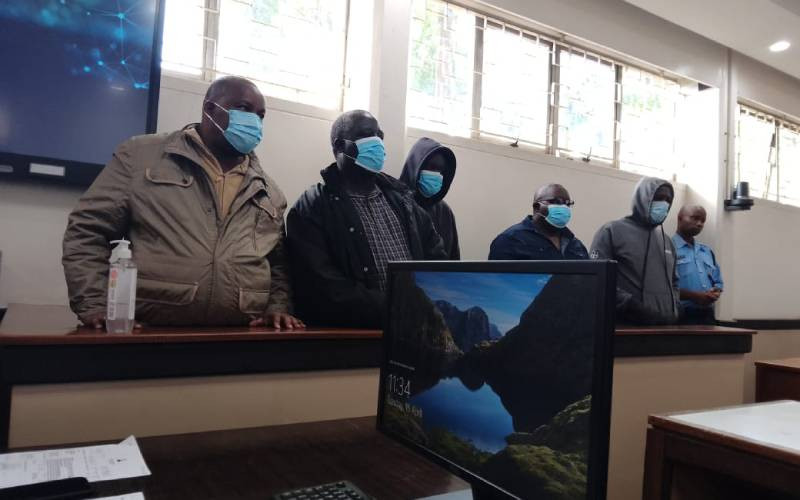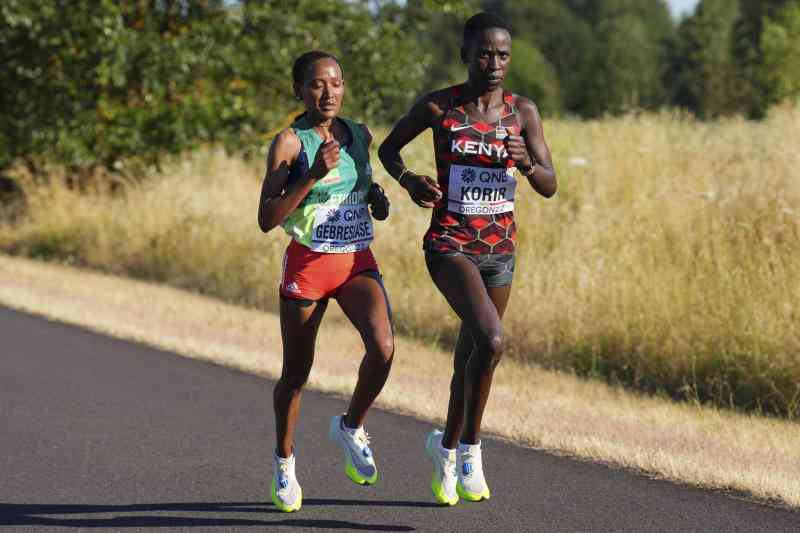By COLLINS KWEYU and ANTONY GITONGA
Kajiado and Nakuru counties: Authorities have launched a probe to ascertain claims that Al-Shabaab is benefitting from the proceeds of poaching in the country’s national parks.
Director of Kenya Wildlife Service (KWS) William Kiprono said with rampant poaching there is a need to establish whether or not Al-Shabaab is receiving funding from poaching.
Kiprono spoke during the launch of an elephant census in Kenya and Tanzania at the Amboseli National Park in Kajiado County yesterday.
He cautioned local communities not to be used by foreigners to kill animals, as proceeds from the sale of ivory may be used to cause harm in the country after funding groups like Al-Shabaab.
“The problem of poaching does not only involve foreigners but is done in four stages – from local level, financiers, exporters up to consumers – and our people are used to kill the wild animals. I urge them to stop this habit as it is primitive and aimed at destroying nature, which cannot then be enjoyed by the next generation,” said Kiprono.
The KWS boss said the government would at the end of this month recruit 600 more rangers to help in the fight against poaching in national parks and game reserves.
Kiprono said the census would be carried out in one week at a cost of Sh12 million and communities living around the park would be sensitised on the need to co-exist with the animals and be encouraged to establish sanctuaries that could create employment.
The Tanzania government was represented at the function by the Principal Research Officer at the Tanzania Wildlife Research Institute Dr Maurus Msuha, who admitted that the problem of poaching was rampant in both countries and needed a joint operation to end it.
Youth informers
Meanwhile, a pastoralist organisation has embarked on training members of Naivasha’s Maasai community to deal with poaching.
The Centre for Pastoralists Development (Cepad) expressed its concern over increased poaching on various ranches in the last few months.
In the last one month, armed poachers have killed five rhinos in the Oserian sanctuary and carted away the horns.
Following the incidents, members of the Maasai community who neighbour the wildlife sanctuaries have agreed to work with the government in dealing with the vice.
According to Cepad CEO Andrew Ole Koisamou, the rise in poaching was worrying as the poachers targeted endangered species.
Stay informed. Subscribe to our newsletter
He said the trained youths would act as informers and scouts as one way of conserving wildlife.
“The organisation has a plan to train community volunteer scouts to take part in animal protection initiatives among other conservation activities,” he said.
He was speaking in Narasha, which borders the Oserian sanctuary, during a meeting with residents on how to contain poaching.
“The community has agreed to volunteer information on suspected cases of poaching and act as informers whenever suspicious people are seen,” he said.
 The Standard Group Plc is a
multi-media organization with investments in media platforms spanning newspaper
print operations, television, radio broadcasting, digital and online services. The
Standard Group is recognized as a leading multi-media house in Kenya with a key
influence in matters of national and international interest.
The Standard Group Plc is a
multi-media organization with investments in media platforms spanning newspaper
print operations, television, radio broadcasting, digital and online services. The
Standard Group is recognized as a leading multi-media house in Kenya with a key
influence in matters of national and international interest.
 The Standard Group Plc is a
multi-media organization with investments in media platforms spanning newspaper
print operations, television, radio broadcasting, digital and online services. The
Standard Group is recognized as a leading multi-media house in Kenya with a key
influence in matters of national and international interest.
The Standard Group Plc is a
multi-media organization with investments in media platforms spanning newspaper
print operations, television, radio broadcasting, digital and online services. The
Standard Group is recognized as a leading multi-media house in Kenya with a key
influence in matters of national and international interest.







